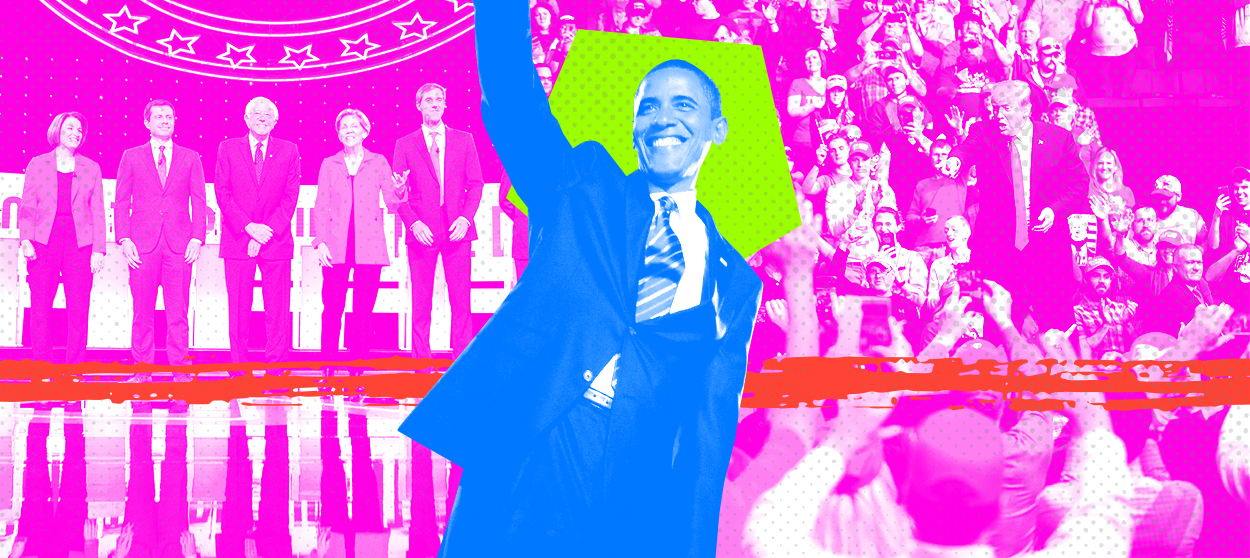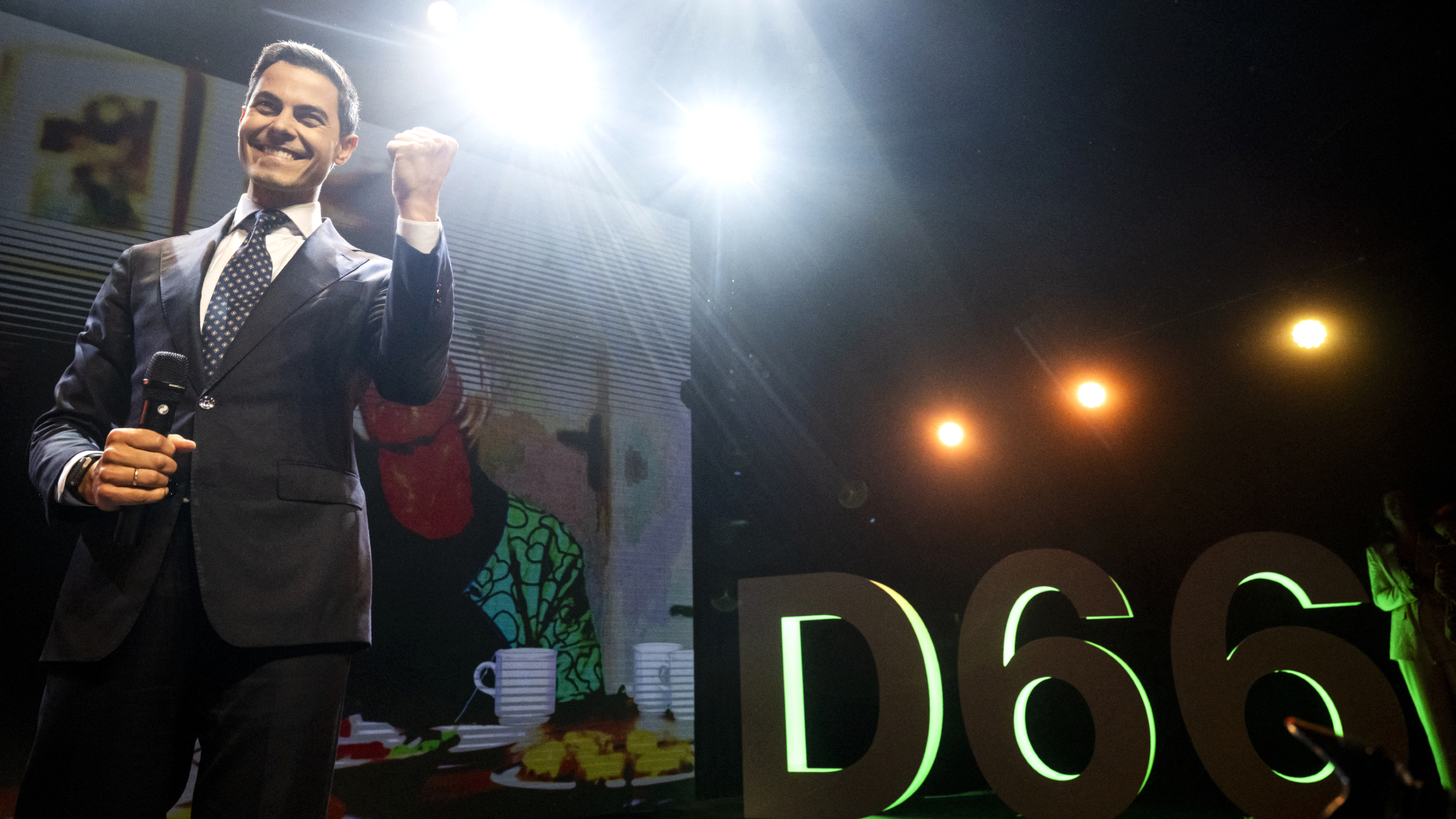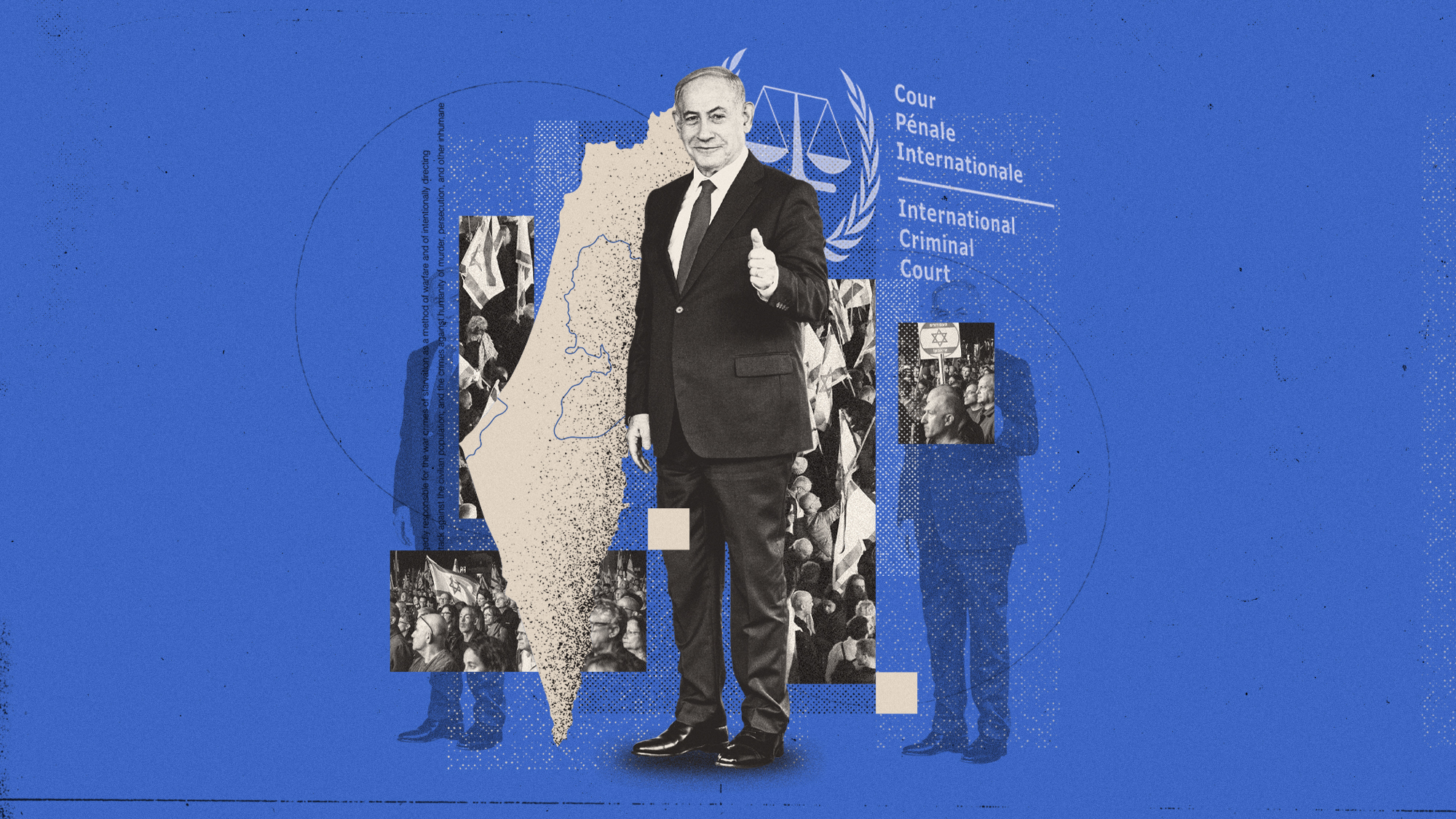The mistake both sides are already making in the 2020 election
Neither party seems to have learned the lesson of Obama's revolutionary 2008 campaign


A free daily email with the biggest news stories of the day – and the best features from TheWeek.com
You are now subscribed
Your newsletter sign-up was successful
In 2007 and 2008, Barack Obama put together a groundbreaking campaign structure that took him from freshman-senator obscurity to the presidency in less than two years. Obama used the same campaign structure to survive a serious challenge in 2012, winning a second term with fewer votes than the first, the only time that's happened in the modern era. His masterful use of grassroots volunteers, social media targeting, and ground-up messaging should have charted a path to the presidency for everyone who followed him.
Yet more than a decade later, it's an open question as to whether either major party has learned anything from Obama's success. That will matter to both presidential candidates in the same battlegrounds that decided the 2016 election — when neither candidate took advantage of Obama's innovations.
Democrats have begun to raise the alarm publicly this week. Anonymous DNC officials told The Daily Beast's Hanna Trudo that "President Trump is crushing us" in battleground states. Jim Zogby, co-chair of the DNC's ethnic counsel, went on the record to criticize DNC chair Tom Perez for allowing the party to ignore "voters from Irish, Italian, Polish, Eastern Central European, Arab, and Armenian-American communities highly concentrated in the Midwest." The Trump campaign has already begun "carpet-bombing Ohio online," state party chair David Pepper complained. "Donald Trump is in general election mode while we're still in primary mode."
The Week
Escape your echo chamber. Get the facts behind the news, plus analysis from multiple perspectives.

Sign up for The Week's Free Newsletters
From our morning news briefing to a weekly Good News Newsletter, get the best of The Week delivered directly to your inbox.
From our morning news briefing to a weekly Good News Newsletter, get the best of The Week delivered directly to your inbox.
In their own defense, DNC officials told Trudo that they have invested significant resources in battleground infrastructure. In Wisconsin, for instance, they have added another field organizer, one more dedicated to rural voters. They have also established a "war room" for "daily e-mail blasts," as well as coordination with comms centers in some key battleground states.
While all of those efforts are necessary, however, at best they miss the lessons of 2008 and 2012. At worst, they copy the failures of 2016 by assuming that politics works best in a top-down structure. Former Obama deputy field director Joy Cushman hit much closer to the problem in the New York Times, asserting that Trump learned what Democrats have forgotten. "Over the past decade, the party elites — consultants, strategists and donors — have caught the data-and-analytics fever and largely abandoned organizing," Cushman warned. "This has meant that entire neighborhoods have been politically redlined out of engagement in our most fundamental democratic practice."
This was the most important and surprising lesson I learned in researching my 2016 book Going Red. The most common misconception about Obama's organization in 2008 was that it used social media only as a communications channel for national messaging. Instead, the use of social media — Facebook in particular — was much more sophisticated. The campaign used it as a tool to find allies in key precincts and neighborhoods and create social circles of volunteers and supporters around them. That allowed the campaign to develop a ground-up feedback loop and to contextualize Obama's agenda at the neighborhood level. For instance, they told Tampa supporters that their infrastructure plan would help resolve a chronic issue with street lights, an important local issue that went directly to quality-of-life concerns that helped create an emotional connection between those voters and Obama. The campaign knew what messaging worked, and could quickly adjust when it didn't — and the engagement drove millions of new voters to the polls.
Rather than emulate that model, both Hillary Clinton and Donald Trump relied much more heavily on national messaging and data analysis. Both are needed in modern campaigns, but both fall far short of turning out the voters needed to swing an election. The results speak for themselves; Clinton lost the three "blue wall" states by losing hundreds of thousands of votes that Obama turned out in 2012, while Trump barely gained at all from Mitt Romney's performance in the previous election.
A free daily email with the biggest news stories of the day – and the best features from TheWeek.com
Cushman credits the Trump campaign with having learned this lesson, but it's not at all clear that they have. The RNC did learn that lesson after 2012 in its famous "autopsy," and then-chair Reince Priebus created the Republican Leadership Initiative (RLI) to emulate the Obama model in key battleground states. That effort has continued, helped along no doubt by the RNC's fundraising dominance over the DNC. However, the Team Trump advantages cited by Democrats in Trudo's article deal with the same kind of traditional, top-down messaging and organizing, perhaps not surprisingly since Trump won his last election with that strategy. Even if the RLI is fully funded and activated, it still requires a presidential campaign that values contextualizing their agenda into local messaging and trusts its grassroots at least as much as its top strategists. Trump is not temperamentally suited for that kind of nuanced presentation, and neither was the team he built in 2016. It's still not clear whether his 2020 team will be any different.
Even if Trump's campaign misses this opportunity, the DNC seems determined to ensure that their nominee misses it as well. Thanks to lackluster fundraising and high debt, Perez doesn't have the resources to build that kind of organization independent of the nominee. However, Perez has gone one step further and has demanded that Democrats running for president pledge not to create a similar parallel organization for themselves. While Obama created an innovative organization, he did so in large part by cannibalizing the DNC. Perez wants to prevent that from happening again by barring "any organizing or messaging infrastructure that is parallel or duplicative" of the party establishment. That might preserve the limited resources that the DNC can develop, but it might mean forgoing strategies to turn out battleground state voters in numbers large enough to win the White House.
We have more than 14 months until Election Day, and a full year before the traditional start of the general election. The strategies are not yet cast in stone, but this kind of organizing — both in personnel and in culture — doesn't happen overnight, either. For now, it looks like both parties will once again miss the huge potential that the Obama campaign revealed.
Edward Morrissey has been writing about politics since 2003 in his blog, Captain's Quarters, and now writes for HotAir.com. His columns have appeared in the Washington Post, the New York Post, The New York Sun, the Washington Times, and other newspapers. Morrissey has a daily Internet talk show on politics and culture at Hot Air. Since 2004, Morrissey has had a weekend talk radio show in the Minneapolis/St. Paul area and often fills in as a guest on Salem Radio Network's nationally-syndicated shows. He lives in the Twin Cities area of Minnesota with his wife, son and daughter-in-law, and his two granddaughters. Morrissey's new book, GOING RED, will be published by Crown Forum on April 5, 2016.
-
 What to know before filing your own taxes for the first time
What to know before filing your own taxes for the first timethe explainer Tackle this financial milestone with confidence
-
 The biggest box office flops of the 21st century
The biggest box office flops of the 21st centuryin depth Unnecessary remakes and turgid, expensive CGI-fests highlight this list of these most notorious box-office losers
-
 What are the best investments for beginners?
What are the best investments for beginners?The Explainer Stocks and ETFs and bonds, oh my
-
 Japan’s Takaichi cements power with snap election win
Japan’s Takaichi cements power with snap election winSpeed Read President Donald Trump congratulated the conservative prime minister
-
 How realistic is the Democratic plan to retake the Senate this year?
How realistic is the Democratic plan to retake the Senate this year?TODAY’S BIG QUESTION Schumer is growing bullish on his party’s odds in November — is it typical partisan optimism, or something more?
-
 The billionaires’ wealth tax: a catastrophe for California?
The billionaires’ wealth tax: a catastrophe for California?Talking Point Peter Thiel and Larry Page preparing to change state residency
-
 Bari Weiss’ ‘60 Minutes’ scandal is about more than one report
Bari Weiss’ ‘60 Minutes’ scandal is about more than one reportIN THE SPOTLIGHT By blocking an approved segment on a controversial prison holding US deportees in El Salvador, the editor-in-chief of CBS News has become the main story
-
 Has Zohran Mamdani shown the Democrats how to win again?
Has Zohran Mamdani shown the Democrats how to win again?Today’s Big Question New York City mayoral election touted as victory for left-wing populists but moderate centrist wins elsewhere present more complex path for Democratic Party
-
 Dutch center-left rises in election as far-right falls
Dutch center-left rises in election as far-right fallsSpeed Read The country’s other parties have ruled against forming a coalition
-
 Millions turn out for anti-Trump ‘No Kings’ rallies
Millions turn out for anti-Trump ‘No Kings’ ralliesSpeed Read An estimated 7 million people participated, 2 million more than at the first ‘No Kings’ protest in June
-
 Has the Gaza deal saved Netanyahu?
Has the Gaza deal saved Netanyahu?Today's Big Question With elections looming, Israel’s longest serving PM will ‘try to carry out political alchemy, converting the deal into political gold’
